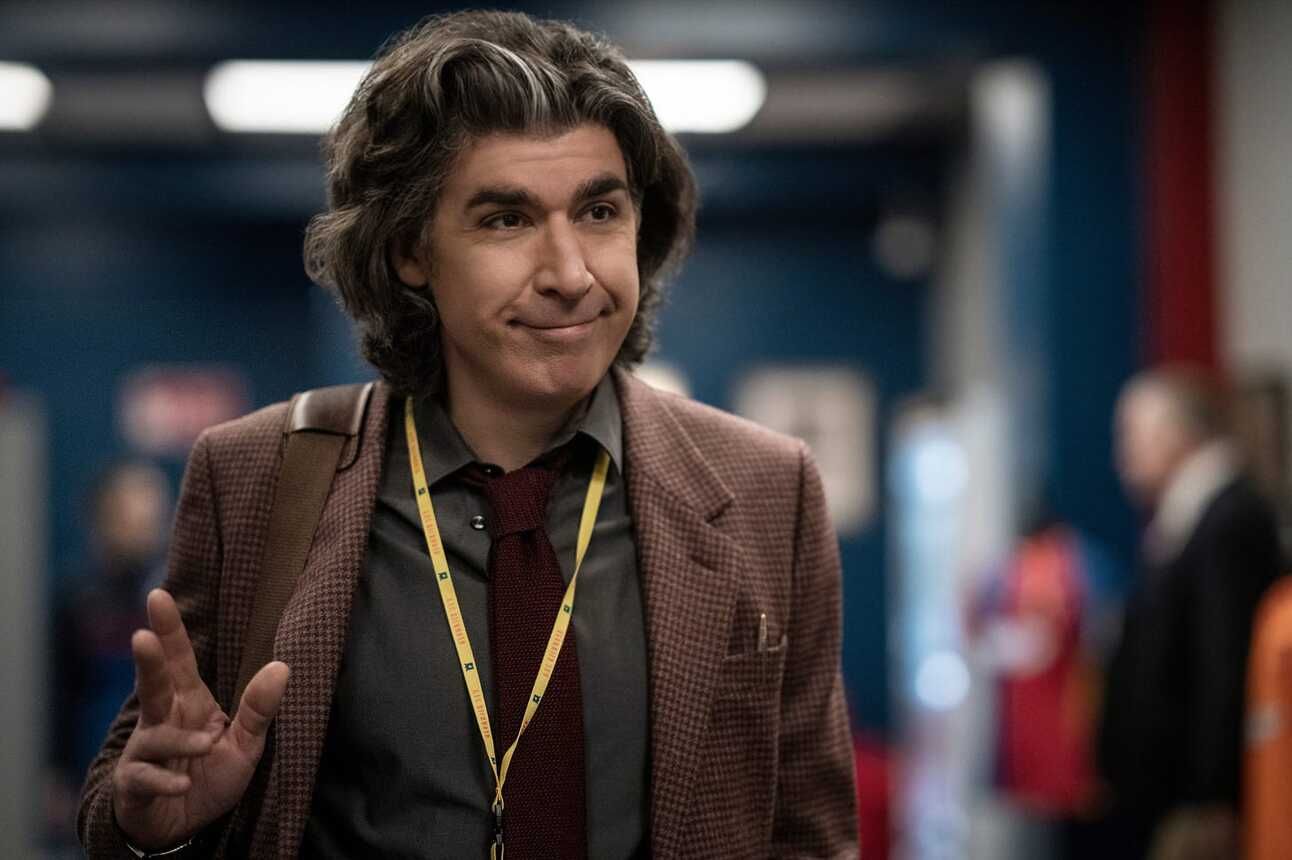- The No-Brainer
- Posts
- In defense of Trent Crimm
In defense of Trent Crimm
Trent Crimm, the defendant.
Personally, I’m glad James Lance backstoried himself into a more featured role on “Ted Lasso.” Maybe it’s out of respect for the Homeric epic about bad dads and societal expectations he concocted, or that Trent Crimm is a great name, but he’s always been a welcome presence. Someone has to keep a level head amidst the relentless optimism and buffoonery. But I should have seen the monkey’s paw curling, and the price for more Trent is the clunker of a scene where he apologizes to Roy Kent for doing his job.

A quick recap: after leaving The Independent, Trent has decided to write a book about AFC Richmond, but Roy manages to intimidate the Greyhounds into stonewalling him until Ted finally talks some sense into the recalcitrant coach. The reason, we find out, is that Roy is still smarting over what Trent said about him when he was seventeen: “newcomer Roy Kent is an overhyped, so-called prodigy whose unbridled rage and mediocre talent rendered his Premier League debut a profound disappointment.” Roy says that this destroyed him, and Trent apologizes, saying that “I thought I was being edgy” and “all I really did was look for the worst in people.”
The Daily Beast’s Fletcher Peters hypothesizes that this moment is the show referencing its critics. I don’t think she’s wrong for interpreting it this way, but I don’t think the evidence, which is that the words Trent used for Roy in his article are similar to how detractors have described the show, is all that convincing.1 Nevertheless, while I don’t think the show is specifically jabbing at its own critics, they are making a pretty obvious point that negative criticism has the power to hurt its subjects. This is technically true, but the corollary the show draws is that the onus is on the critics to apologize. This is absolutely ludicrous.
If everyone wrote like they were walking on eggshells lest feelings get hurt, there would only be laudatory reviews or—at the very most—basically damnation by way of faint praise. I really don’t want to come across as a “facts don’t care about your feelings” kind of person, but part of the risk of putting yourself out there is that people might not think your work or skill is a gift from God, and you have to be okay with that. I’ll crib from Peters again: “it is (or rather, was) Trent’s job to be honest about football and those who play.”
To be honest, this situation with Roy seems to be more of an indictment of the footballing system than it is of the people who write about it (frankly, 17 is just too young to be in a spotlight like that). Or maybe Roy’s mistake was even reading what people said about him in the first place. Criticism is not for the creators or soccer players or whatever is being written about; for the benefit of everyone, they should steer clear. If Roy didn’t get that advice, that was probably a failure on his managers’ part to help him keep his sanity, and that sucks. But the existence of criticism is not the problem here.
All of that said, critics do have to be responsible. There is some truth in what Trent says—critics have incentives to eviscerate something with flair because people love a good takedown. Indeed, an edgy pan with nothing real to say is just sound and fury, and we don’t need more noise. And there is such a thing as going too far, like personal attacks that have nothing to do with the subject at hand.
So, did Trent go too far? Frustratingly, we don’t get the context of Trent’s entire piece, but I think we can assume this snippet that Roy still keeps in his wallet2 was the most out-of-line thing Trent said. True, criticism of people can get tricky, and if not handled correctly, it can lean into baseless ad-hominems. Maybe the comment about “unbridled rage” toed the line. But Trent didn’t say that Roy is a terrible person or that his bedroom is a mess. His criticism, while harsh, was on-subject and thus fair game. Furthermore, a careful read shows that he may be commenting on the flawed idea that “unbridled rage”3 will lead you to footballing glory. Is that not in line with the very premise of the show?
While I’ve been defending Trent this whole time, I once again agree with Peters: he should have stood by his words. For one, Roy isn’t that scary, and a good journalist can find creative ways to make people talk. But more importantly, if he wasn’t going to defend exactly what he said, he should have still maintained his right to criticize Roy in the first place. Caving like that is a self-inflicted hit to his credibility. If this scene is any indication of where Trent’s priorities now lie, well, he has a very promising future in PR.